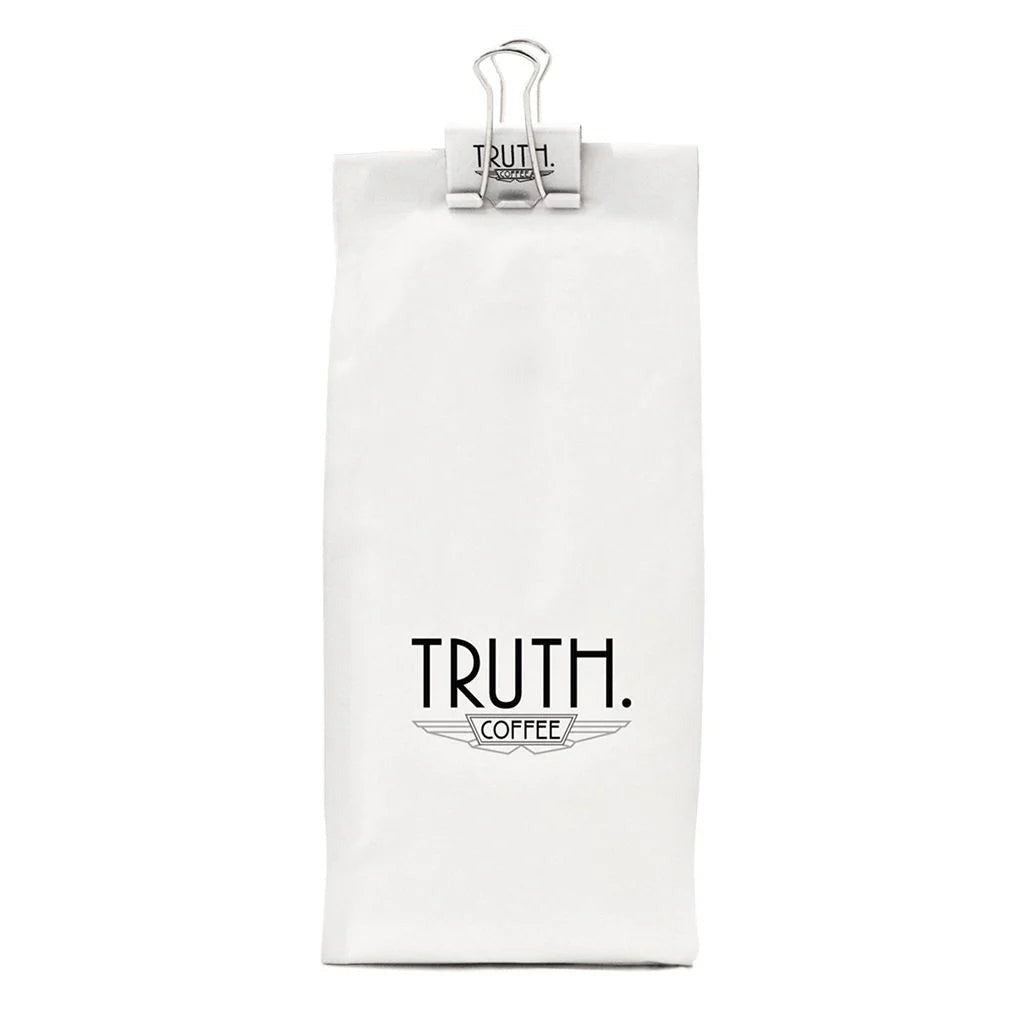
We only receive deliveries of these coffee beans once per week, so you may need to wait up to a week for dispatch.
Known for its bold, earthy flavours, Indonesian coffee is famous the world over. The equatorial archipelago is one of the world’s largest coffee producing countries, consistently appearing amongst the top ten green coffee exporting countries each year. Coffee is firmly embedded in the local culture, too. Some 1.7 million Indonesian workers make their livelihoods in coffee production, and Indonesia leads in domestic coffee consumption relative to other large coffee producing countries.
This particular coffee, roasted by our friends at Truth. Coffee Roasting, comes from the province of Aceh, found on the northern end of Sumatra, which is the largest island in Indonesia and the sixth-largest island in the world. Aceh has the biggest range of biodiversity in the Asian Pacific region, and is the only place in the world where tigers, elephants, rhinoceroses and orangutans can be found in the same habitat. More than 60% of Indonesian Arabica coffee is produced in northern Sumatra.
Aceh, an autonomous state, is known for its natural resources and natural splendour, which has been tragically marred by deforestation for decades. A significant proportion of the state’s GDP is in agriculture, and coffee cultivation plays an important role in both that sector and in conservation and reforestation efforts. KOPEPI, the majority-woman coffee cooperative that grew and processed this particular coffee, collaborates closely with green coffee exporters DRWakefield to fund and manage reforestation efforts across Sumatra. The cooperative plants indigenous trees and plants that renew local ecosystems and cash crops that provide additional income for local farmers
Like most Indonesian coffee, this lot has undergone a traditional form of processing called Giling Bisah, otherwise known as a semi-washed or wet-hulled process. After harvesting, the skin and pulp of the coffee cherries is removed, but the mucilage is left on. The coffee, now in its more familiar “bean” form, is then left to dry to a moisture level of about 30-35%, which is higher than the 11-12% of a typical washed or natural process. Following this, the coffee is then hulled fully and left to dry further until reaching the desired moisture content for storage and export. This processing method tends to impart earthy, spicy flavours into the coffee, and a heavy body in the cup.
Phaedon's tasting notes
It's been a while since I've had a Sumatran coffee, particularly a traditional giling basah process, so I was readying myself for heavy, earthy, forest floor, cigar-box kind of notes... and that's not really what I found here. Don't get me wrong; this coffee is full-bodied and sweet, but I'd stop short of calling it heavy or earthy, certainly not smoky. On the contrary it's a little more refined than that.
In addition to the less-surprising chocolatey and slightly spicy notes I found in this Sumatran, I also detected some fruity sweetness and perhaps even some honey notes. They're subtle, but they balance out the cup beautifully, allowing it to be both classic and interesting.
I would steer clear of paper filtration with this one. I think you lose something with the coffee oils and brew colloids that paper filters out. Instead, I'd opt for espresso, moka pot or even a good old French press, to enjoy the full effects. I also had tasty results with my siphon, where either the extraction heat, or the cloth filter, allowed enough of those intriguing characteristics to come through.
Coffee details
- Truth’s tasting notes: Chocolate, pineapple, brown sugar, lemongrass, berry-like
- Origin: Indonesia, Sumatra, Aceh
- Producer: KOPEPI coffee cooperative
- Varieties: Gayo1, Gayo2
- Process: Semi-washed (Giling Basah)
- Altitude: 1350 - 1700 masl
- Reviews
- Questions
